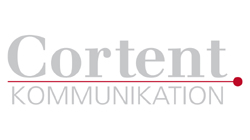The German Mittelstand
German SMEs: no need to unify Capital Markets

Poor old Europe. Some 80 percent of investments in European SMEs are still funded by banks while entrepreneurs seek a mere fifth of overall SME capital requirements on capital markets. In the United States the situation is the exact opposite, with 80 percent of companies resorting to capital markets for the funding they need. EU Commission President, Jean-Claude Juncker, intends to turn this situation round. Hopefully, European companies will be attracted enough by the easier terms of the unified framework of conditions to place shares, bonds or other financial instruments on the capital market. In Brussels, the project has been known for some time as “The Union of capital markets”.
Making funding easier for companies to access is certainly a good thing. Setting conditions in an overall unified framework to be implemented over the whole European Union, though, is causing certain German stock market speculators sleepless nights. As things stand now, they are complaining about the capital market being over-regulated by the flood of rules and directives that Brussels regularly sends out which makes easy things difficult for companies with shares or bonds listed on the stock market. The DAI (Deutsche Aktieninstitut) has made its position regarding the proposed unification of the capital markets clear, expressly requesting that the needs of the companies be taken duly into account.
There is a certain misgiving, not altogether unjustified, that even the markets that already function very efficiently will soon find themselves snowed under with the new EUDs and EU Commissioner Jonathan Hill says nothing to allay this fear. He recently pointed out that Europe must meet the challenge of injecting dynamism into investments as a way to foster growth and combat unemployment, objectives that can only be pursued by having a true domestic capital market in all 28 Member States, acting as broker between savers and investors on the one hand and small/small-medium sized companies on the other. All this smacks a bit like kin liability, because Hill concludes by saying that easier conditions for company funding would be a good thing. However, according to the President of the Savings Bank Association, Georg Fahrenschon, there is no call for third-party funding to be made easier for companies to access, either in the majority of European countries or, even less so, in Germany.
German SMEs enjoy excellent health outside Germany, too. Their reputation is excellent – even despite the occasional SME bond not living up to expectations. Whoever has a duly approved business model in Germany does not have to go through too many hoops to obtain third-party capital on the stock market. This is why German market-listed SMEs must not bear the brunt of new rules and regulations. Let European politicians remember that ‘thinking the right thing’ isn’t always the same as ”doing the right thing”. The road to hell, as they say, is paved with good intentions.















